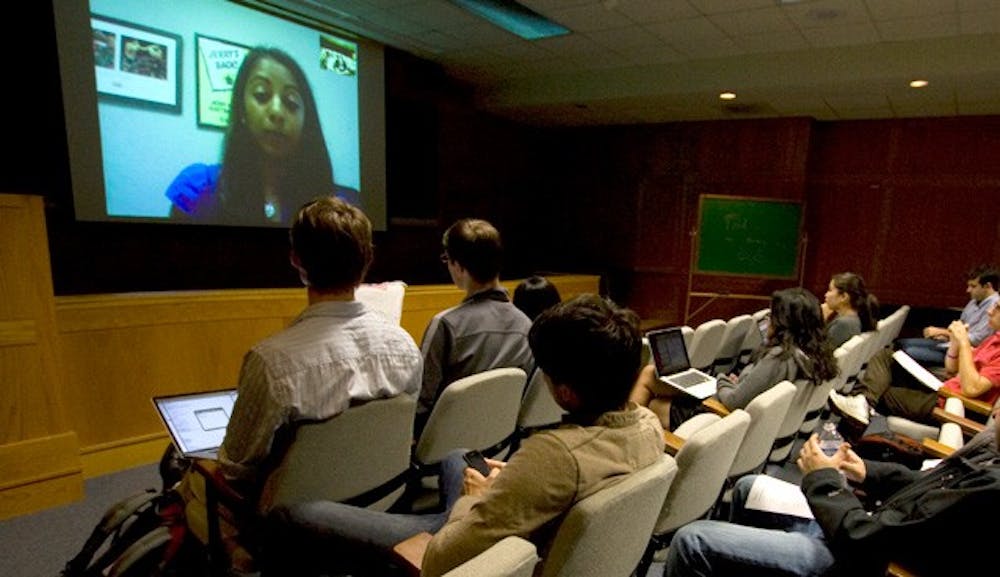For students who have a concept for a business but no idea how to start it, a recent Duke alum has some advice.
Poornima Vijayashankar, chief executive officer of business consulting start-up BizeeBee, spoke via Skype to students interested in business about how to start a company Thursday in Teer Building. She advised students to think of an idea, ask others opinions on it and then “execute the idea.”
Howie Rhee, managing director of the Center for Entrepreneurship and Innovation, moderated the session on start-up companies and introduced Vijayashankar.
“The goal is to help students be inspired to start a company,” he said.
Vijayashankar, who graduated from Duke in 2004 with a degree in both electrical and computer engineering and computer science, stressed the importance of knowing your market and maintaining self-confidence.
“Know your demographic and think about product and market potential,” she said. “Don’t fixate on the fact that everyone might have your idea if you have a novel approach to it.”
After graduating, Vijayashankar was the third engineer to join Mint.com, a finance management start-up, where she gained valuable experience observing how the business and engineering teams interacted with each other. She said working at Mint.com allowed her to be a part of a company from its launch to its acquisition for $170 million by Intuit, an accounting software company.
“I loved building a personal finance product and brand at Mint.com. Now I’d like to do the same in the small business space at BizeeBee,” Vijayashankar said, explaining that Bizeebee aims to simplify small business software by creating custom development solutions.
Vijayanshankar told students to spend the time and research the “pains” that customers face and attempt to come up with a solution. She added that she got her idea for Bizeebee from her experiences in Bikram Yoga studios, which she said used technology that was not user friendly.
“Once a pain is realized and a thought process ends with a viable idea, you should get other people’s opinions on it,” she said. “Too many people [think to themselves,] ‘Oh, I have this idea and it is brilliant and I don’t want anyone to steal it.’”
Still, she stressed the importance of execution over the importance of the original start-up idea.
Senior Andrew Brown, who asked Vijayashankar about domain names for new companies, said he enjoyed the event.
“It’s great to talk to another entrepreneur who’s reasonably young and in a similar position to us. She was incredibly receptive with sincere feedback,” he said.
Divya Iyer, a graduate student in engineering, said she attended the session because “these start-up companies connect you to the real world instead of university school cases which teach ‘fake’ cases.”
Vijayashankar’s final words served as a warning to young entrepreneurs.
“People who are young often approach this as a quick money-making system, but it’s not,” she said. “You get involved and you realize this is something you do for the long run.”
Get The Chronicle straight to your inbox
Signup for our weekly newsletter. Cancel at any time.

